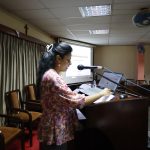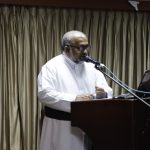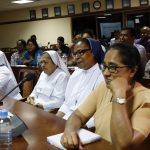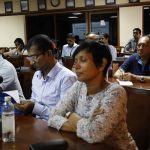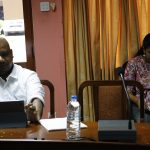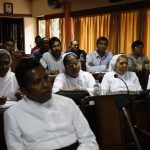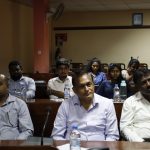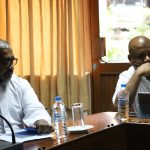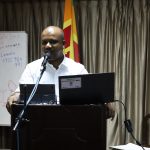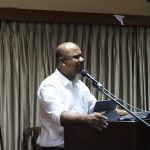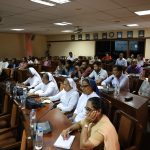Presently Sri Lanka is undergoing multiple challenges due to the economic and political crises in the country. The improper governance reforms and obtaining of foreign loans during the past years, the Sri Lankan government is in its inability to repay the external debt, whose interest and repayment must be paid in foreign exchange. In the meantime, the government is trying to find solutions to improve the situation which is resulting in significant burdens being placed on ordinary citizens. There are many things that are taking place unnoticed. With the objective of raising awareness, Caritas Sri Lanka SEDEC organized a session on “ Debt Restructuring and Governance Reforms in Sri Lanka” on September 13, 2023 at the Caritas Sri Lanka – auditorium.
For this timely awareness session, we had the privilege of inviting Mr. Nuwan Bopage, a distinguished attorney – at – law, as our guest speaker. He has emerged as a prominent figure in the recent reform struggles at Aragalaya and has been a vocal advocate against the arbitrary arrests of key activists.
“In the current scenario, we find ourselves with financial resources but a scarcity of meaningful purchases, and even the act of breathing has become a subject of political matter,” remarked Mr. Nuwan Bopage. During his detailed analytical address, he said how politics has ruined the country and stressed having a citizen’s power groups at every district in the country.
One of the primary challenges facing Sri Lanka presently is the burden of substantial foreign loans coupled with a lack of foreign currency for repayment. This critical situation has been worsened by the government’s request for a $3 billion loan from the United Nations Monetary Fund. He said that the foreign workers are remitting $6 billion to Sri Lanka which is more than the IMF loan. Mr. Nuwan Bopage discussed the potential solutions to this economic and political crisis, including systemic reforms or a complete change of the existing system.
He mentioned the conditions attached to IMF loans, shed light on issues concerning the Employee Provident Fund (EPF) and Employees’ Trust Fund (ETF), and explored into the particulars of the prevailing 30% tax rate. Mr. Bopage informed that Sri Lanka has taken foreign borrowing on 16 occasions and emphasized the pressing concerns of brain drain, rising drug addiction, the emergence of non- professionals into government agencies, and electoral misconduct.
In closing, Mr. Bopage emphasized the need to empower the people to fight against the rigid decisions of the ruling party, and creating a more participatory and resilient society.
Following the guest speech, an interactive session was conducted. The representatives from the Caritas Sri Lanka network posed multiple questions and shared their views. This session was organized by the Disaster Risk Reduction Unit of Caritas Sri Lanka and was made possible through the Emergency Support Program of Caritas Internationalis, Misereor, and Caritas Italy (Bishops’ Conference).


